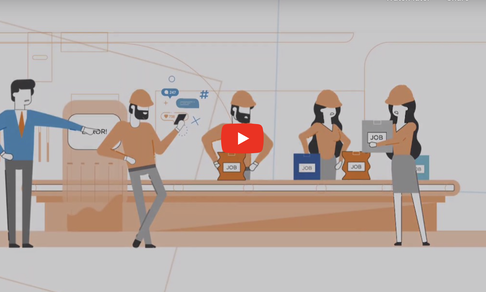What is the role of Workload Automation in a disaster recovery mode?Forewords: coping with a crisis It is with an intense sense of modesty that we are approaching this topic, since this article is written in the midst of the most severe crisis for humanity our generation ever faced. Consequently, writing about how an IT solution can help recovering from - and coping with - a planetary health emergency is not an easy task at all. We want to be sure we transmit our respect for the human aspects of the COVID-19 pandemic occurring these days, and at the same time listen to the voices that tell us how also the economic consequences of it will hurt humanity. We are well aware – and we even used automation to keep track of it - of the impact the current pandemic crisis is having on our daily lives. We feel that the correct adoption of proper IT disciplines and solutions will give a contribution, in times like these, when millions of people are locked-up at home and an economic crisis is being predicted by analysists. This is the reason why we are writing this article. Let’s begin reminding that crisis is a word that, despite its negative common interpretation, also carries positive messages. In any western language, crisis has the same etymology: it comes from the Latin crisis which in turns derives from the Greek krísis, which means “choice” or “decision”. In Chinese, crisis is composed by the concatenation of “danger” and “opportunity”, or according to other interpretation “danger” and “crucial moment”. Any of the above interpretations describes very well what our Society is facing this year, and we’ll analyze the role of Automation with respect. So, what is Automation already doing for us today? A very simple consideration would explain it all: This is the time when more than ever it is evident how our lives, and our idea of “normality”, rely on the correct functioning of unattended IT processes. Living in a scenario where physical proximity of human beings is dangerous, the only people allowed to go to work are those whose job is strictly necessary for the survival of the entire population. Anybody else stays home, smart-working if possible, suffering unemployment otherwise. Governments had to evaluate and identify which are such necessary jobs, and the list is longer and more complex than we have ever imagined. But it could have been quite longer if many activities weren’t automated. For the supply chain of our food, energy production, and so many other things, we rely on automated IT processes to keep conducting the life we assumed it’s normal. Without automation, many more people would have to put at risk their health to perform those activities, and some activities would not be possible at all. Automation changed from being a mean to reduce costs and increase revenue, to being also a discipline that allows a safe and sustainable day-by-day progression for all of us. Companies are now striving to keep functioning in emergency mode, and those who are more prepared for automation are resisting better. These are two aspects of automation playing a positive role today:
Last but not least, in a context in which systems are running unattended these days more than ever, being able to rely on a trustworthy platform is key. Administrators connected from home for example may not be 100% responsive as they used to, because of:
HCL Workload Automation can help companies running their business unattended, with automatic recovery actions and eliminating the need of human intervention in most cases. And this is and will be true even after the crisis. What automation can do for us right now and tomorrow If you are trying to figure out where your investments on automation will go once we enter the next phase of the emergency and business hopefully start accelerating again, consider the following aspects. You can accelerate restart by getting ready to automate more and better: how many processes do you currently automate? Which are your automation needs? From DevOps to IT tasks, passing for batch scheduling and business tasks, we know how complex your ecosystem can be. Using Workload Automation you can ensure governance on the whole process, while interconnecting these different flows and controlling them from one single platform. At the moment all companies are experiencing a slow down on activities: it’s the right moment to work on the automation strategy and learn how to expand it. Last but not least, transform the lessons learned into business opportunities: are there some areas which you could have automated and you didn’t? Here comes your chance to change that. How HWA can concretely support recovering from the crisis So, in practice, we believe HCL Workload Automation can help companies recovering faster from this crisis under two aspects: 1. Everybody for sure discovered a more efficient and more effective way of doing business, either via smart-working or reorganizing processes. Companies as well will soon reorganize some processes -if not many- to be more effective. Process reorganization will be done taking advantage of Automation as much as possible, having a real hybrid end-to-end workload automation solution like HWA will provide a significant advantage. 2. The economy need to get in shape ASAP. Companies make economy, so companies need to get financially profitable in the shortest time possible. HWA can be a key element to increase the speed of operation, maximize quality and lead to higher productivity at lower costs, to help businesses be back on track rapidly. Employees can be dedicated to productive and value-added activities, leaving machines to perform repetitive tasks. We could not avoid this terrible crisis. Let’s work on what we can control, in our case enabling the fastest recovery of your business. Want to learn more about Workload Automation? Visit our website or drop us a line at [email protected] or [email protected]. AUTHORS’ BIO
0 Comments
Your comment will be posted after it is approved.
Leave a Reply. |
Archives
July 2024
Categories
All
|





 RSS Feed
RSS Feed